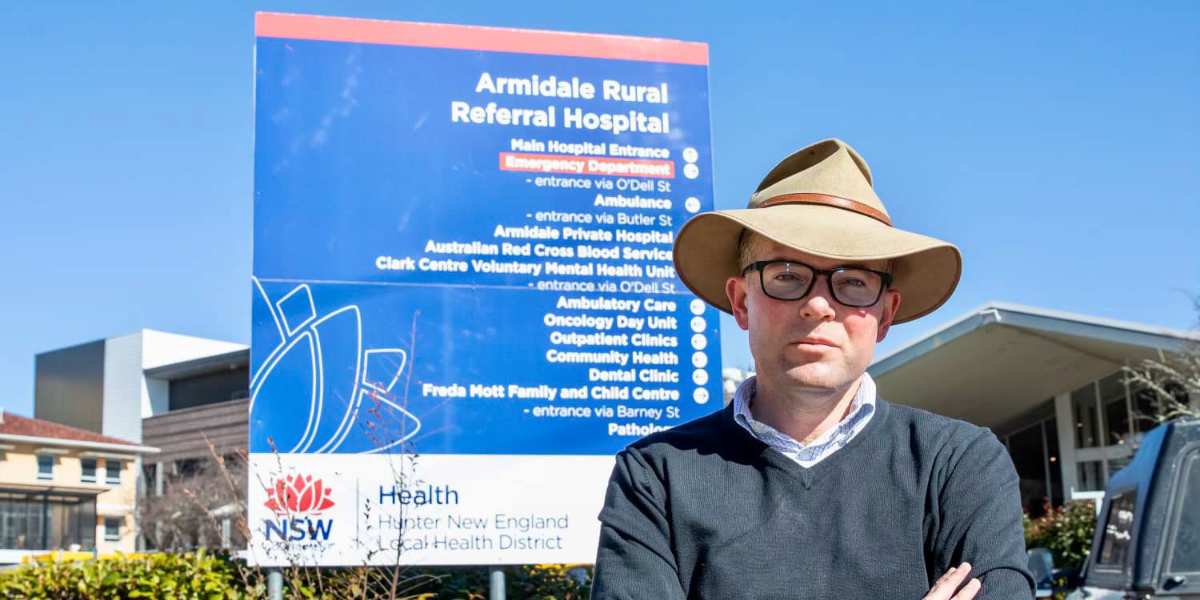Member for Northern Tablelands Adam Marshall has welcomed an announcement this week by the Federal Government tripling the bulk billing incentive, but says it will do little for people in rural areas with little or no access to a GP.
Mr Marshall said the announcement was an important and critical first step, but that much more needed to be done to arrest the decline of GPs in the bush and ensure people west of the Great Divide had equal access to quality primary healthcare.
“[The announcement] will do nothing for the vast majority of seniors and young families waiting months to get into their local GP or still in search of one with their books still open,” he said.
“In communities where there are good numbers of local GPs, this will no doubt be a great and long-overdue step forward, but what regions like ours desperately need are government incentives to increase the numbers of GPs so everyone can get in and see a doctor when required.
“We didn’t hear anything about that and I hope this isn’t an indication the government thinks tripling the incentive is the panacea and the problem will now simply correct itself – because it won’t.”
Mr Marshall said that rural NSW had lost more than 200 GPs over the last decade, with many communities not having a single GP who was taking new patients.
“The reality is that many people across our region and other parts of country NSW don’t have any access to a GP and their only option is to present to a hospital, which are often struggling to find doctors as well,” Mr Marshall said.
“This cannot go on and something must be done urgently to arrest the 20-year trend of declining GP numbers in the bush.
“As it stands, to achieve the same level of general practice access across rural and regional Australia, it would require the movement of 1,129 GPs from major cities to the country.
“We need the government to commit to the immediate rollout of the GP single employer model across all rural and regional Australia, introduce a bonded scholarship model for graduating GPs in the country and review and increase the rural generalist payments to make becoming a rural GP on a par financially with becoming a specialist in a major city.”
Like what you’re reading? Support The New England Times by making a small contribution today and help us keep delivering local news paywall-free. Support now


